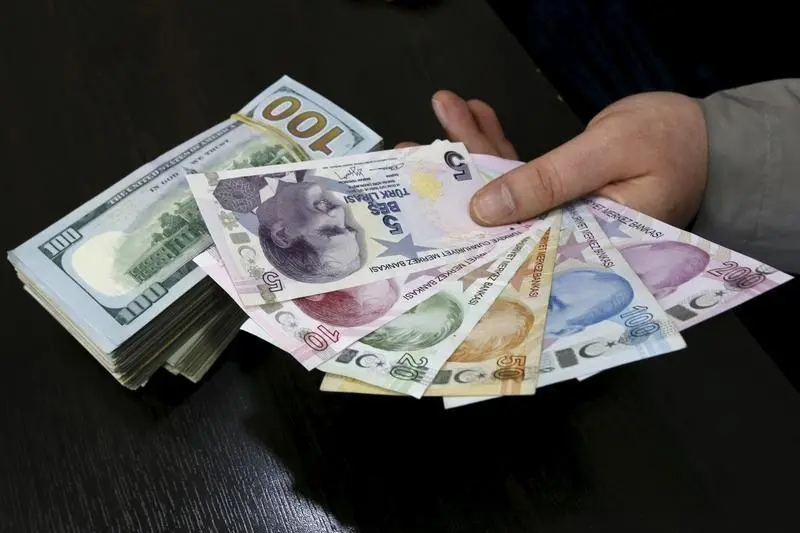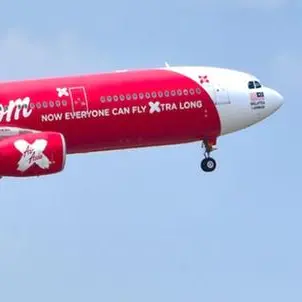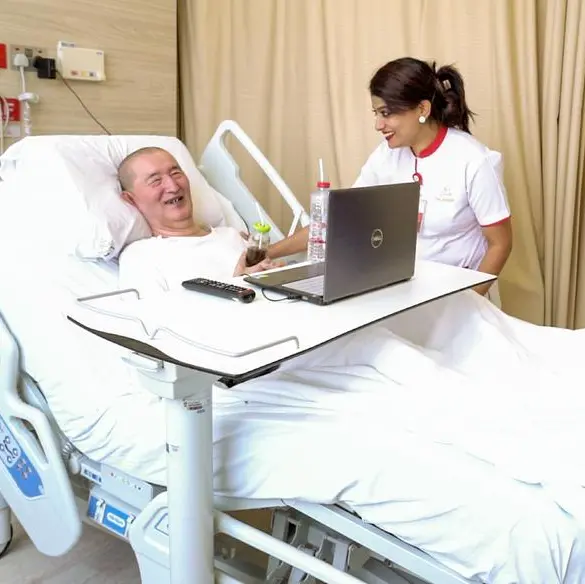PHOTO
By Claire Milhench
LONDON, Jan 12 (Reuters) - The Turkish lira rebounded on Thursday as dollar weakness helped it move off record lows while emerging stocks rose to two-month highs, led by strong gains in Russia and some Asian bourses.
The Turkish lira
TRY=
, which has lost around 8 percent against the dollar since the start of 2017, recovered by 1.2 percent, pulling away from Wednesday's record lows as the dollar fell 0.7 percent against a basket of currencies
.DXY
.
"There is in general a more optimistic sentiment on emerging currencies today, which is because of the dollar weakening as a consequence of Trump's speech yesterday," said Cristian Maggio, head of emerging markets strategy at TD Securities.
At Wednesday's news conference, U.S. President-elect Donald Trump gave few details about his fiscal expansion plans, disappointing those who had bet on major stimulus, sending the dollar to one-month lows.
Maggio said the lira was still underperforming its emerging market peers, but could enjoy a "very short-term respite" due to general market conditions and the central bank's attempts to tighten some of the short-term monetary conditions. The central bank did not open a one-week repo auction in an effort to tighten liquidity, raising hopes of other moves to shore up the currency.
"But none of that is structural and long-term and the lira will remain skewed to extreme weakness until the central bank decides to hike ... interest rates," he said.
In recent days the lira has been pounded by concerns about Turkey's political reforms, its sluggish economy, rising inflation and militant attacks. >
Political tensions remained high on Thursday after deputies in parliament brawled during a debate on constitutional reforms aimed at expanding the powers of President Tayyip Erdogan.
Other emerging currencies also made gains, with the South African rand
ZAR=
among the strongest performers, up 1.6 percent.
The Mexican peso
MXN=
also firmed 0.9 percent after hitting a record low on Wednesday after Trump said U.S. car companies would face a high tax for products made in Mexico.
Trump also reiterated that the United States would start building a southern border wall after he took office and he wants Mexico to reimburse the cost through a tax or a payment.
China's yuan
CNY=
firmed 0.6 percent and overnight offshore borrowing costs eased to 2.69 percent after surging to more than 60 percent last week due to tight liquidity. The Korean won
KRW=
also ended up at a one-month high.
The positive momentum extended into equities, with the benchmark emerging stocks index
.MSCIEF
rising more than 1 percent to its highest since Nov. 9.
A lack of detail on tariffs in Trump's news conference boosted Asian export-oriented markets such as South Korea and Taiwan, while Russian stocks were supported by Trump's defence of better ties with Moscow, plus higher oil prices
Korean stocks
.KS11
rallied to their highest level since July 2015 after Samsung Electronics
005930.KS
rose 1.3 percent to another record high. Taiwan stocks
TWII
gained 0.7 percent to their highest since June 2015 and Russian dollar-denominated stocks
.IRTS
surged 2.1 percent.
Russian assets have been supported for weeks by the view that Trump will pursue a friendlier policy than President Barack Obama, with some investors betting on an easing of Western sanctions imposed against Moscow during the Ukraine crisis.
Serbia's central bank is expected to keep rates on hold at 4 percent on Thursday as policymakers pursue a lower inflation target and seek to reassure investors ahead of an election in May.
The bank has been intervening in the local interbank market in recent days to bolster the dinar, but it was flat against the euro ahead of the meeting.
(Additional reporting by Karin Strohecker; Editing by Gareth Jones) ((claire.milhench@thomsonreuters.com; +44)(0207 542 3571; Reuters Messaging: claire.milhench.thomsonreuters.com@reuters.net))
LONDON, Jan 12 (Reuters) - The Turkish lira rebounded on Thursday as dollar weakness helped it move off record lows while emerging stocks rose to two-month highs, led by strong gains in Russia and some Asian bourses.
The Turkish lira
"There is in general a more optimistic sentiment on emerging currencies today, which is because of the dollar weakening as a consequence of Trump's speech yesterday," said Cristian Maggio, head of emerging markets strategy at TD Securities.
At Wednesday's news conference, U.S. President-elect Donald Trump gave few details about his fiscal expansion plans, disappointing those who had bet on major stimulus, sending the dollar to one-month lows.
Maggio said the lira was still underperforming its emerging market peers, but could enjoy a "very short-term respite" due to general market conditions and the central bank's attempts to tighten some of the short-term monetary conditions. The central bank did not open a one-week repo auction in an effort to tighten liquidity, raising hopes of other moves to shore up the currency.
"But none of that is structural and long-term and the lira will remain skewed to extreme weakness until the central bank decides to hike ... interest rates," he said.
In recent days the lira has been pounded by concerns about Turkey's political reforms, its sluggish economy, rising inflation and militant attacks. >
Political tensions remained high on Thursday after deputies in parliament brawled during a debate on constitutional reforms aimed at expanding the powers of President Tayyip Erdogan.
Other emerging currencies also made gains, with the South African rand
The Mexican peso
Trump also reiterated that the United States would start building a southern border wall after he took office and he wants Mexico to reimburse the cost through a tax or a payment.
China's yuan
The positive momentum extended into equities, with the benchmark emerging stocks index
A lack of detail on tariffs in Trump's news conference boosted Asian export-oriented markets such as South Korea and Taiwan, while Russian stocks were supported by Trump's defence of better ties with Moscow, plus higher oil prices
Korean stocks
Russian assets have been supported for weeks by the view that Trump will pursue a friendlier policy than President Barack Obama, with some investors betting on an easing of Western sanctions imposed against Moscow during the Ukraine crisis.
Serbia's central bank is expected to keep rates on hold at 4 percent on Thursday as policymakers pursue a lower inflation target and seek to reassure investors ahead of an election in May.
The bank has been intervening in the local interbank market in recent days to bolster the dinar, but it was flat against the euro ahead of the meeting.
(Additional reporting by Karin Strohecker; Editing by Gareth Jones) ((claire.milhench@thomsonreuters.com; +44)(0207 542 3571; Reuters Messaging: claire.milhench.thomsonreuters.com@reuters.net))





















